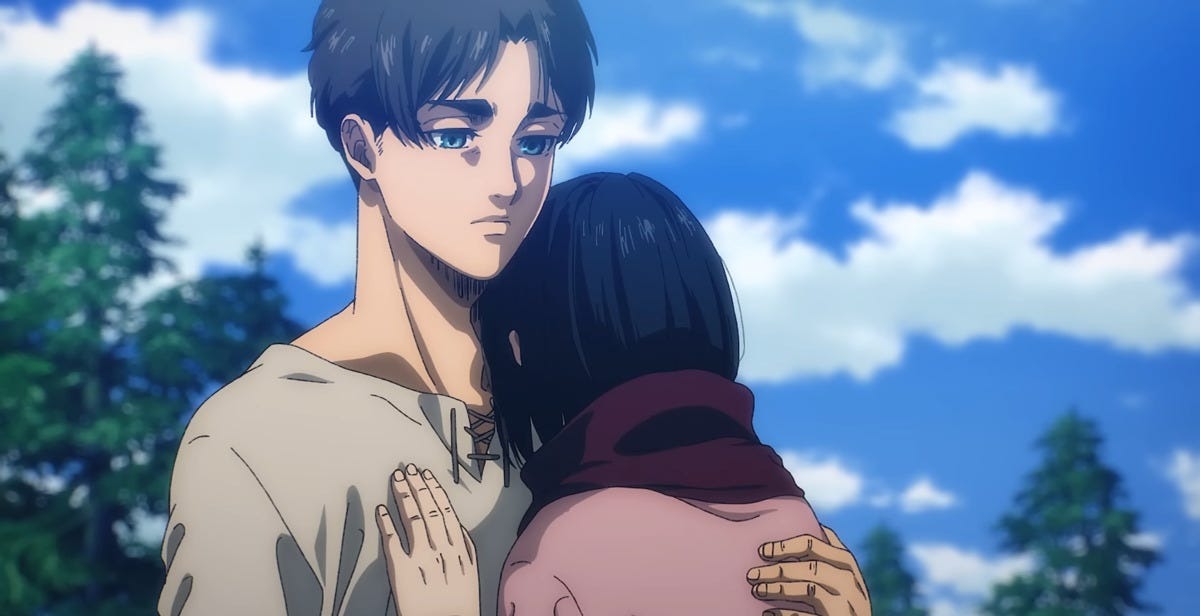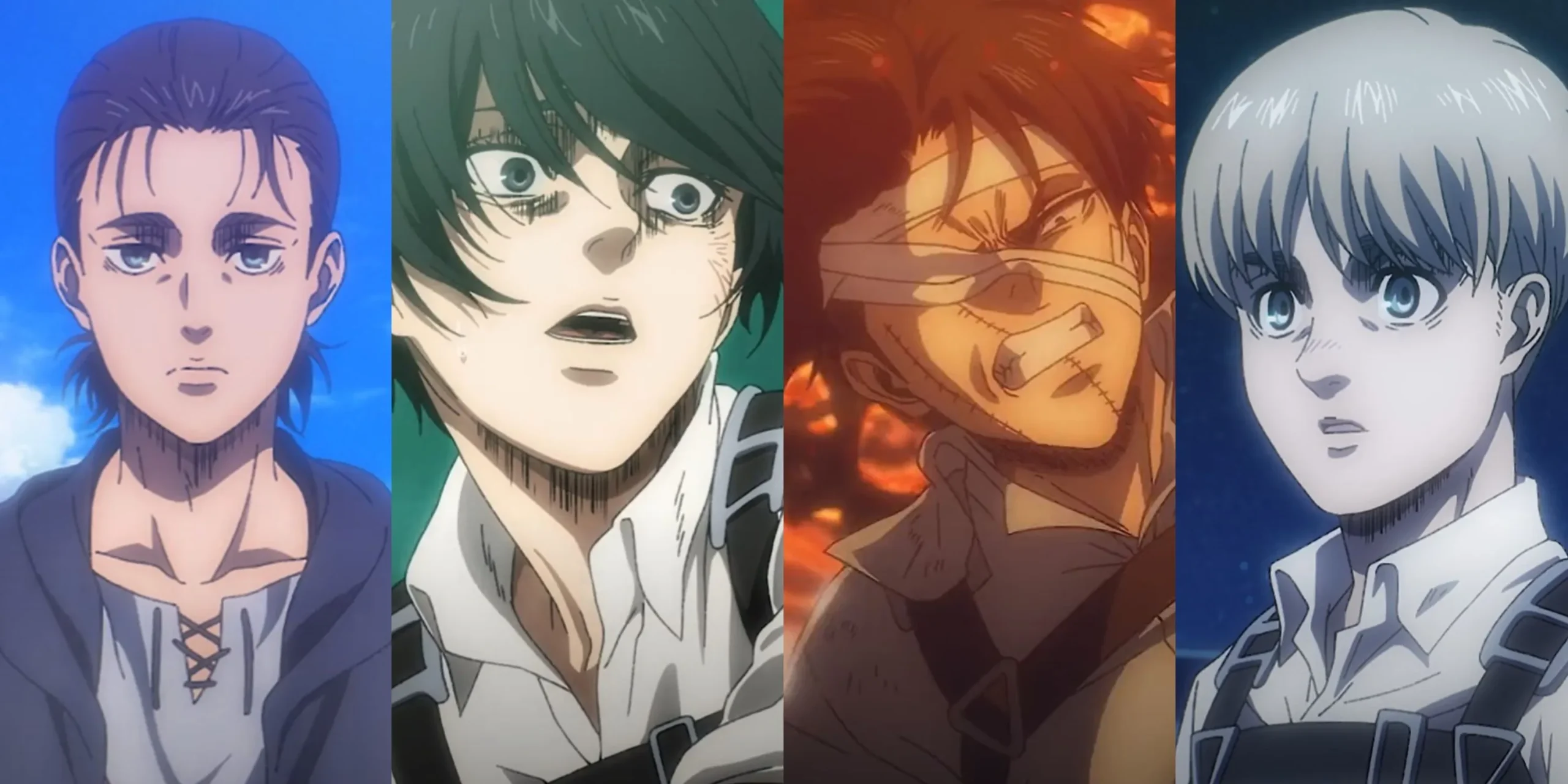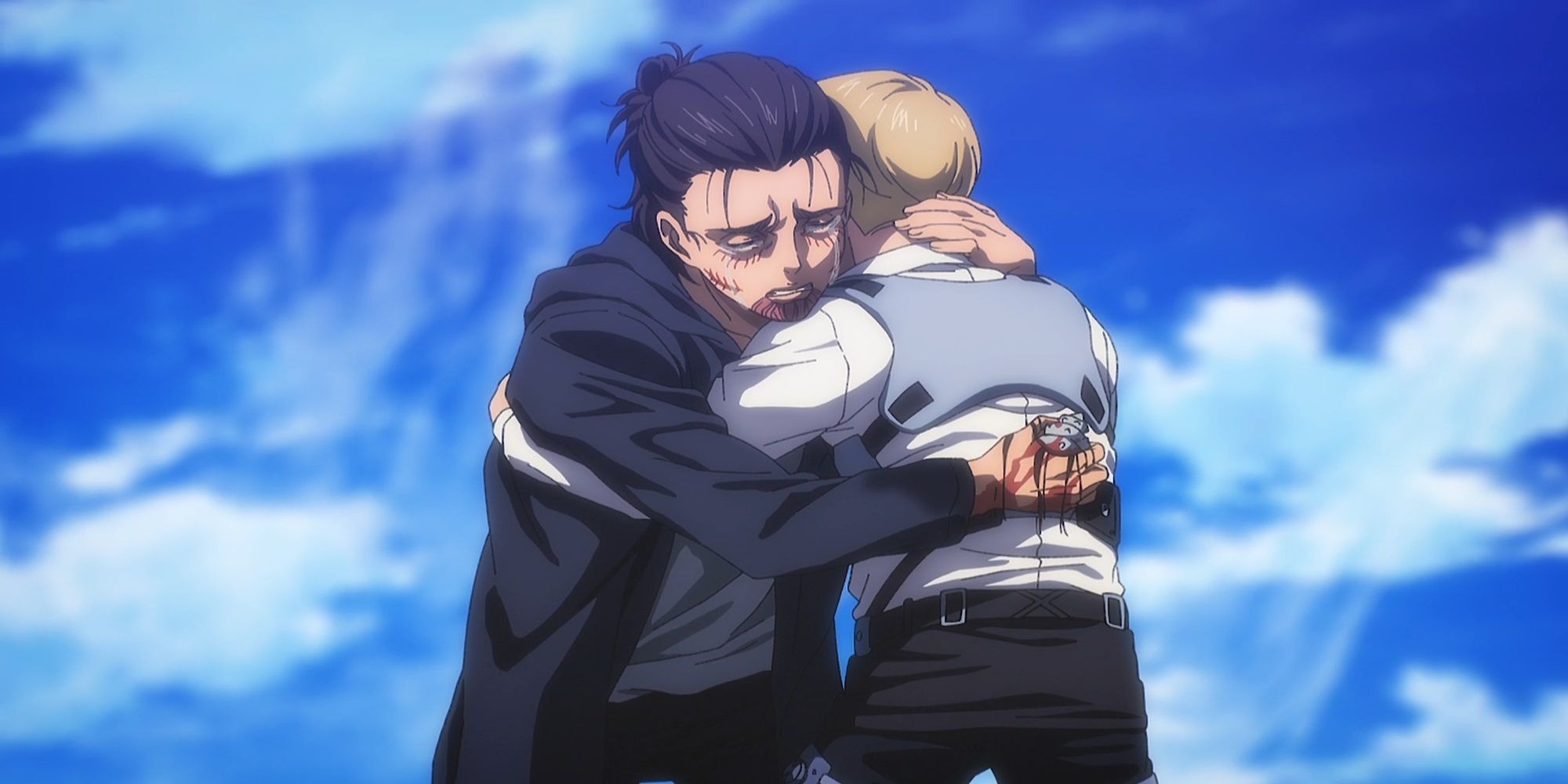After a decade and two different anime studios, Attack on Titan finally wrapped up its anime adaptation on November 5, 2023. The conclusion of the series, for better or worse, closely followed the extended ending of the manga with only minor adjustments.
As a result, both manga readers and anime-only viewers are likely to have similar reactions to how everything played out. With the full power of the Founding Titan now in his grasp, Eren initiated the Rumbling, unleashing his Titans across the world to annihilate everyone beyond Paradis Island.

Although Armin, Mikasa, Levi, and the rest of Eren’s former comrades understood that the Rumbling was meant to secure their homeland and had no alternative plan, they refused to justify genocide as a solution.
Determined to stop him, they joined forces with several Marleyan soldiers to put an end to Eren’s destruction. Throughout their mission, many lives were lost, with Hange’s death standing out as one of the most impactful.
Despite the heavy casualties, they pressed on, fully committed to confronting Eren and saving humanity from complete annihilation.
How Attack on Titan Concludes Eren and Mikasa’s Relationship
As Eren made a final effort to keep the Rumbling going, he took on a new Titan form to battle Armin, while a mysterious worm-like entity released a gas that transformed every nearby Eldian—except for Mikasa, Levi, and the Titan Shifters—into mindless Titans.
These newly formed Titans were meant to aid the creature in reuniting with Eren. Overwhelmed by everything happening around her, Mikasa found herself trapped in a vision of an alternate reality where she and Eren had run away together and lived in peace while the world waged war.
Strengthened by this vision, Mikasa made a heartbreaking choice—she severed Eren’s head from within his Titan form and bid him farewell with a final kiss. Despite her deep love for Eren, hints in the story suggest that Mikasa eventually found companionship with another hero from Attack on Titan.
The Meaning Behind Attack on Titan’s Ending
With Eren’s demise and the destruction of the worm-like entity, Attack on Titan’s finale marked not just the end of the Rumbling but also the complete eradication of Titan’s powers. Before departing, the spirits of Sasha, Hange, the Survey Corps, and Ymir Fritz appeared one last time to express their gratitude.
Afterward, Mikasa chose to bury Eren’s head beneath the tree where they once played as children.
Meanwhile, Armin remained behind to address the ongoing tensions between Eldians and Marleyans, carefully using Eren’s planned story—where Armin would be recognized as the hero who defeated him—to bring some level of stability.
Three years later, deep-seated animosity persisted worldwide. The Yeagerists had become more extreme, and the outside world remained suspicious of the Eldians. As Armin and his allies made their way to a peace summit, they acknowledged that many people still had valid reasons to resent them.
However, Armin remained hopeful that if given the opportunity, open dialogue could lead to understanding. The episode wrapped up with a series of moments featuring different characters interacting with the wider world, ending with Mikasa expressing gratitude to Eren one final time.
Differences Between Attack on Titan’s Anime and Manga Endings
While the anime remained largely faithful to the manga’s ending, some differences were introduced. One of the most evident changes involved the way Paradis was portrayed after its destruction. In the manga, Paradis’ ruins had a modern architectural look, whereas the anime opted for a futuristic aesthetic.
This alteration implied that Paradis was wiped out so far into the future that none of Eren’s comrades or their descendants were still alive. This change subtly reframed Eren’s actions, making them feel less futile compared to the way the epilogue played out in the manga.
Another adjustment was in how Eren’s actions were perceived. In the manga, there was an element of reluctant gratitude toward Eren, with some characters acknowledging that his use of the Rumbling was an attempt to help them.
However, the anime made a clearer effort to highlight the brutality and flaws in Eren’s choices. Characters, including Armin, repeatedly condemned his decisions, making it obvious that his actions had only intensified hatred toward the Eldians.
One common criticism of the manga was that it didn’t do enough to emphasize that Eren was in the wrong, so these changes strengthened that perspective in the anime. Eren’s reflections on his actions were also handled differently.
The anime portrayed Armin’s reaction to Eren in a harsher light, which in turn led Eren to admit that none of what happened was preordained. He confessed that he only claimed destiny was guiding him because he could not think of another way forward.
By altering these aspects of the story, the anime reinforced the idea that Eren’s choices were flawed, making it feel more consistent, even if it remained divisive among fans.
Does Attack on Titan Justify Eren’s Actions?
Attack on Titan allows viewers to form their interpretations, but Eren’s morality remains one of the most debated topics in the fanbase. In the manga, Armin’s gratitude toward Eren for his so-called sacrifice was sometimes perceived as an endorsement of Eren’s actions.
Given the horrific oppression the Eldians faced throughout the series, it became easy for some fans to sympathize with Eren’s perspective. Even with these arguments in mind, a deeper analysis of the story’s conclusion does not support Eren’s actions.
While his plan temporarily removed the immediate danger posed by Marley, it did nothing to end the endless cycle of violence. He may have bought Paradis some time, but the island was eventually bombed in the future, raising doubts about whether his plan truly secured its safety.
When factoring in the mass extinction caused by the Rumbling, it becomes evident that Attack on Titan condemns Eren’s approach rather than justifying it.
What Lies Ahead for Attack on Titan After the Anime and Manga Endings?

A Sequel Is Unlikely, But Some Additional Content Exists
Though both the Attack on Titan anime and manga have come to a conclusive end, a few related projects have either been released or are on the way. One such addition is Bad Boy, a short chapter by series creator Hajime Isayama that provides insights into Levi’s past.
However, despite the anticipation surrounding Isayama’s first Attack on Titan work since the series ended, Bad Boy turned out to be a relatively minor addition that didn’t alter the story. Beyond Bad Boy, the biggest event for Attack on Titan fans post-ending is the upcoming film Attack on Titan – THE FINAL CHAPTER: THE LAST ATTACK.
This movie is set to reimagine the series’ conclusion in a more cinematic format. Japanese audiences can expect THE LAST ATTACK to premiere on September 8th, though an international release date has yet to be announced.
While primarily a recap, the film may include additional scenes, making it worth checking out for longtime fans.
Will Attack on Titan Ever Get a Sequel?
A major lingering question after the series’ conclusion is whether Attack on Titan will ever receive a sequel. While long-running shonen franchises such as Dragon Ball, Naruto, and Bleach have continued through new storylines, Attack on Titan appears less likely to follow that trend.
The epilogue’s imagery of a boy discovering the tree where Eren’s head was buried feels more like a thematic symbol of violence repeating itself rather than a setup for a new story. Even if a continuation were to happen, it would be vastly different from what fans know.
By the time of the epilogue, the original cast has long since passed away, and the world has advanced technologically to a modern era. Without its most iconic characters and central mysteries, any potential sequel would likely bear little resemblance to the Attack on Titan that fans have come to know.
Given all these factors, those hoping for a direct follow-up may have to accept that Attack on Titan has truly reached its conclusion.



